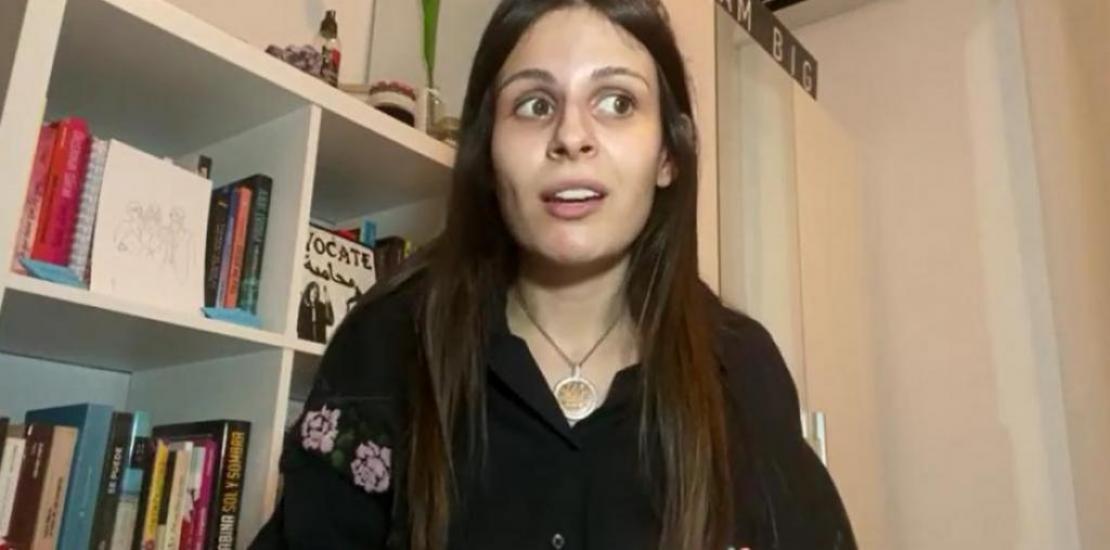My voice will never stop fighting; nothing is impossible
The testimonies of Noah Higón, diagnosed with seven rare diseases, and Sonia Torres, mother of a child affected by one of these pathologies, have opened the 13th International Conference on Rare Diseases, organised by D’GENES and UCAM, an event that until Thursday brings together 900 participants from 20 countries online
“My voice will never stop fighting for our rights, to be recognised and because nothing is impossible. I have proved this on many occasions and I will continue to do so”. These are the words of Noah Higón, a 21 year-old young woman from Valencia who this Tuesday opened the 13th International Conference on Rare Diseases, organised by D’Genes and UCAM, with her testimony. Since she was 13 years old, Noah has been diagnosed with seven rare diseases, has gone through surgery 15 times, and a month ago was left the ICU after two operations. Despite the difficulties, she has been very active in social networks for several years, making those suffering from rare diseases visible. She says that from the beginning she wanted to change something that bothered her “the fact that people look the other way” and show “the diversity and complexity faced by patients and families”. She has captured all this in her book ‘De qué dolor son tus ojos’. Noah thanked all the doctors and researchers for their work and called for the removal of bureaucratic obstacles.
After the discovery of a diagnosis, the second problem faced by rare disease sufferers is their visibility, and the third problem is the barriers they encounter in society. They are therefore grateful for the fact that there are scientists who are committed to investigating these pathologies and ask the administration to be sensitive to their needs. Sonia Torres, mother of Aarón, a 9 year old boy from Extremadura, knows how important it has been for her son to be properly enrolled in school. This is why she calls for the involvement of families, professionals and the bureaucracy to remove the obstacles for children. “It is a path of great sacrifice and pain for the families and people who take care of them, but nothing compared to the strength and greatness that people and children with rare diseases have, who show us every day the courage to live and feel grateful, because life is a gift after all” she said.
More than three million people in Spain live with a rare disease, more than 80,000 of them in the Region of Murcia, representing more than 5% of its population. After the opening testimonies, Juan Carrión, president of D’Genes, took part, emphasising that, with this conference, Murcia “becomes the world capital of rare diseases, thus taking up the legacy with which D’Genes was born, which is to create a space for coexistence between people who suffer from them, their families, health professionals and all those agents involved in this field”.
José Luis Mendoza stated that UCAM, the university he presides over, collaborates through economic contributions with the societies of people affected and with different researches, highlighting those directed by Juan Carlos Izpisúa, professor of Developmental Biology. He concluded that it is essential that these people “have equal opportunities and a dignified life”.
For his part, Fernando López Miras, president of the Autonomous Community of the Region of Murcia, stated that “we are absolutely committed to caring for people with rare diseases, they must be present in our daily lives” and highlighted the work carried out by the D’Genes Foundation. Manuel Villegas, Regional Minister of Health, and Patricia Lacruz, Director General of the Basic Portfolio of the National Health and Pharmacy System, also spoke, ensuring the commitment of their administrations through resources and the promotion of research to address treatments in the most coordinated and effective way possible for these people.
Worldwide benchmark
The event, which has become a worldwide benchmark in rare diseases, brings together researchers, students, families and affected people. For three days, aspects of interest regarding rare diseases in areas such as diagnosis, research or orphan drugs will be addressed. At the same time, several symposia on specific pathologies will be held: Lyme, Alagille Syndrome, Incontinentia Pigmenti and undiagnosed.
In addition, during the testimonies, the research promoted by UCAM, ‘Cell Reprogramming for the Treatment of Multiple Sclerosis’, was presented, which has opened the door to crowdfunding on the website of the Ministry of Science and Innovation, www.precipita.es, where contributions can be made.




